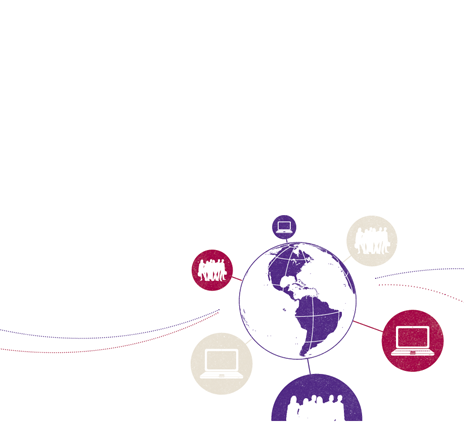-
Deals Services
The financial advisors of Grant Thornton offer customized solutions to their clients through personalized methods and services.
-
Technology
Our goal is to redefine how clients do business. With expertise in digital strategy, AI, data insights, and automation, we create personalized solutions to enhance productivity and drive innovation.
-
Strategy and Investments
The Strategy and Investments department supports businesses at strategic, operational and financial level.
-
Environmental, Social, Governance, Risk & Compliance
In the current business and regulatory environment, businesses aspire to meet today's requirements effectively, and to create value on sustainable terms.

-
Audit Services
The dedicated staff of Grant Thornton provide you with audit services such as financial statements for your business by using the HORIZON methodology.
-
Business Growth Advisory
At Grant Thornton, we recognize the need to align financial data with regulatory change, as well as the requirement for accurate financial data and consulting services.

-
Corporate Taxation
Grant Thornton's tax professionals offer Corporate Taxation Services to provide advice and solutions to any issues your business may have.
-
Corporate tax compliance
The Grant Thornton corporate tax compliance specilaists possess long experience in both multinationals and Greek companies in all business sectors.
-
International tax services
Grant Thornton supports all businesses operating at the European and international level with advice on international tax matters.
-
Transfer pricing
Grant Thornton offers comprehensive pricing policy planning and tax audit support for domestic, multinational and corporate tax executives.
-
Tax Controversy
Grant Thornton provides tax audit and risk services because tax disputes are unavoidable in numerous businesses.
-
Private Client Services
In case you are an individual, Grant Thornton provides services like tax returns, transfer of wealth to future generations and expatriate taxation services
-
Indirect taxes
Learn more from Grant Thornton about our services for indirect taxes such as real estate taxes, customs, VAT and stamp duties.
-
Tax restructuring
Grant Thornton provides tax advisory services to companies undergoing tax restructuring or a change in their strategic direction.
-
Diagnostic Tax Review
Diagnostic tax review is a tax service offered by Grant Thornton to assist your organisation in identifying and assessing potential tax exposures.
-
Tax efficient supply chain planning
Get informed about tax efficient supply chain planning and how to improve your company's productivity model by reorganizing your productivity activities.
-
Global mobility strategy
In a globalized world, businesses must work seamlessly across borders. Organizations operate in multiple countries and view international expansion as a strategic objective.

-
Accounting & Tax Compliance Services
Transferring non-core, yet important, activities outside the company and assigning them to specialists - external partners (Business Process Outsourcing) is the best practice applied by companies seeking to maximize efficiency and cut costs.
-
HR & Payroll services
Grant Thornton provides specialized services in payroll management and human resources management for any type of company.

-
Banking
Grant Thornton has a dedicated financial services team that provides banking services such as tax and non-bank accountancy advisory services.
-
Insurance
Here you will find all the financial assurance services that Grant Thornton can offer to your company and the pillars that are included.
-
Asset management
In Grant Thornton, asset management is a business approach that concerns assurance and control services and regulatory compliance services.
-
Central Government
Grant Thornton provides services to central government agencies to respond immediately and effectively to the challenges that have arisen.
-
Public Corporations and Organizations
Grant Thornton supports Public Enterprises and Organizations to evaluate their operations and upgrade their services to meet current requirements.
-
Local Government
Grant Thornton and its qualified employees offers audit and consulting services to support local government challenges.
-
NSRF Managing Authorities and Special Services
Grant Thornton's specialized team of executives provides Technical Assistance services for the programs managed by Special Services.
-
Public Health Services
Grant Thornton includes experienced professionals whose aim is to provide integrated services at all levels of the public health system.
-
Social Security Services
The public sector division of Grant Thornton provides high quality audit and advisory support services to members of the pension system.
-
Banking
Banking & Securities
-
Insurance
Insurance
-
Asset management
Asset management
-
Central Government
Grant Thornton provides services to central government agencies to respond immediately and effectively to the challenges that have arisen.
-
Public Corporations and Organizations
Grant Thornton supports Public Enterprises and Organizations to evaluate their operations and upgrade their services to meet current requirements.
-
Local Government
Grant Thornton and its qualified employees offers audit and consulting services to support local government challenges.
-
NSRF Managing Authorities and Special Services
NSRF Managing Authorities and Special Services
-
Public Health Services
Grant Thornton includes experienced professionals whose aim is to provide integrated services at all levels of the public health system.
-
Social Security Services
The public sector division of Grant Thornton provides high quality audit and advisory support services to members of the pension system.
-
Hotels & tourism services
Hotels & tourism services
-
Transportation
Transportation
-
Information Technology
Information Technology
-
Media
Media
-
Telecommunications
Telecommunications
Blockchain technology already plays a crucial role in the financial services sector. Now interest from other industries is on the rise, says Luis Pastor, IT consulting and innovation Partner, Grant Thornton Spain.
Originally created as the technology to support digital currency 'bitcoin', blockchain has been seized upon by the financial services sector, where it is playing a crucial role in tracking and authenticating transactions.
In 2015, it was revealed that nine of the largest investment banks in the world, including Goldman Sachs, JP Morgan and Credit Suisse, were exploring common standards for blockchain technology in an effort to broaden its use across the sector.[1] Swathes of financial businesses, including three insurers and Toyota Financial Services, have since joined them, forming a consortium of 45 businesses focused on the research and development of blockchain usage in the financial system.
Meanwhile, Simon Taylor, vice president of blockchain R&D at Barclays, has described the technology's ability to provide a continuously growing list of records, secure from tampering and revision, as “a fabric for financial services – a book and records for the world.”[2]
The financial sector clearly sees opportunity in the adoption of blockchain. And a recent survey by Greenwich Associates suggests it is yet to peak, with an estimated US$1 billion being invested by the financial and technology markets in 2016.
How other sectors are embracing blockchain
Of course, if financial services businesses can find advantages from the adoption of blockchain technology, then you may well be wondering what it can offer other sectors. Some examples are already beginning to emerge.
Insurance is one area of financial services where blockchain is an obvious fit. The sector is employing blockchain technology when registering luxury assets to help prevent theft and fraud. One project, which involves Interpol, insurers and diamond distributors, is working to stem the flow of ‘blood diamonds’ into the precious-stones market. Blockchain provides what is hoped will be a tamper-proof record of the provenance of diamonds.
In the health sector, blockchain is being considered as a solution to the counterfeiting of drugs. The creation of a decentralised database of medical records, which would give patients more control over their personal data, is also being explored.[3]
These examples clearly show the benefit to industries and sectors. But can blockchain help businesses directly deliver a benefit to their customers – enhancing the customer experience, improving loyalty and, ultimately, driving profits?
One start-up energy-supply business in Australia certainly believes so. PowerLedger[4] has adopted a blockchain-secure ledger to empower residents on the country’s West Coast, which has 300-plus days of sunshine every year, to trade excess energy generated by their solar panels. They will be able to buy, sell or swap excess solar energy with anyone connected to the Western Power network.
The business’s co-founder, Jemma Green, believes consumers “want to take control of their energy generation and consumption”, rather than simply selling it back to energy providers. And blockchain, she believes, is the technology to deliver that service. “We want to show that this tech is so simple to use that anyone can use it,” she said at the company’s launch earlier this year.
How to assess the value of blockchain to your business
While the hype around blockchain may suggest it can be applied to any business, it isn’t always a suitable solution. So how do you ensure it is a viable option for your business and that it can truly add competitive advantage? And how do you implement it?
These considerations can be broken down into three key stages:
1. Training
The training stage is about obtaining hands-on experience of how blockchain works, where it can be applied and how to leverage it, often through case histories.
2. Diagnosis of the business case
Diagnosis of the cost and benefits of using blockchain, in the context of a business case, is also vital – not least because adopting new technologies will likely involve the replacing of a legacy system or generating a new business model.
3. Development
The development stage will require you to understand which is the right solution for you. Right now, there are no one-off ‘plug-and-play’ products on the market, so every solution must be tailor-made.
Of course, this process is not straightforward and you will likely face many challenges along the way. Implementing a change programme of this magnitude is time-consuming. With blockchain, once a protocol is developed, you must be prepared to go back and forth to fine tune the product. And because blockchain as a concept is still evolving, new advances are emerging all the time.
There are other industry-related challenges to consider too, such as sector-specific laws and government regulations. For industry-wide projects, it’s always best to bring in the regulators from the beginning. Although interest from early adopters such as China, Estonia, India, Singapore and the UK is particularly strong, many governments and regulators aren’t ready for blockchain and in those cases we have to find a solution without them.
All of this means collaboration with experts and a willingness to ‘test and adapt’ is a must.
Blockchain will create huge disruption in many sectors and, potentially, see some firms leave the market. But by bringing in the right expertise and adopting a collaborative approach, it might also be the technology that will help you to steal a march on your competitors.
Click here to speak to Luis Pastor or one of our specialist team about whether blockchain is right for your business.



